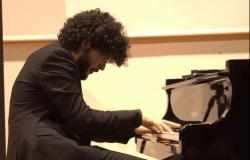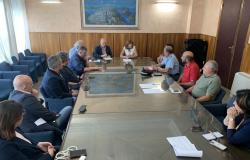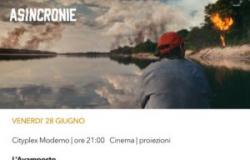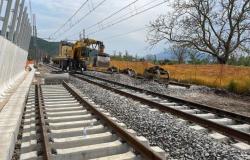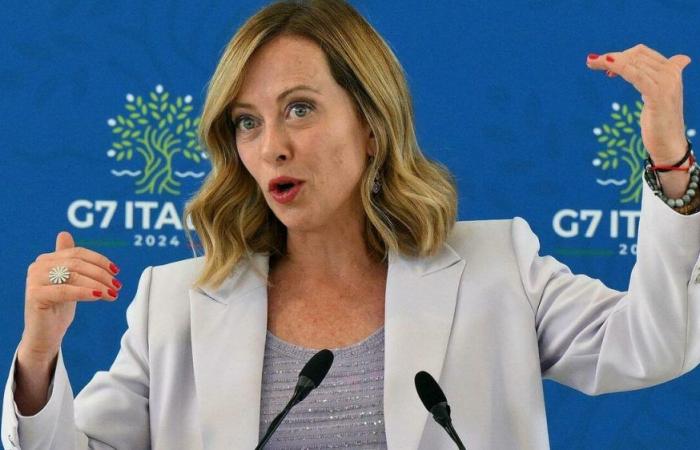
Think of yourself as the center of the world, without giving in to the temptations of grandeur or the illusions of megalomania. And for a few days, a week at least, really be. To be more precise, find yourself at the crossroads of attentions and interests, dialogues and contrasts, agreements and contrasts. At the exact point where north and south, west and east – places of the soul rather than the planisphere – border each other and have been looking into each other’s eyes for centuries. Sometimes friends. Sometimes enemies. There where the north gives way to the south, to all the south of the world. It almost seems like poetry to say it, if it weren’t geopolitics. Often harsh, harsh. Even violent. Precisely in this strip of land the Lords of the World and those who would like to be – except China And Russia – they met. Here in Puglia.
Analysts and experts have explained, and will continue to explain, the material and symbolic value of events such as the summit G7. These are opportunities to take stock of the situation, evaluate the evolution of scenarios and emergencies, understand where the new times are leading, and how to intervene before they cause disasters. Or, on the contrary, how to accompany them so that they best unfold their development potential. A pit stop for a very thorough service, in short. Operational decisions will be made elsewhere; in other places agreements and understandings will be drawn up which will lead to targeted interventions and concrete actions. This is and remains the moment for statements of principle, with all the weight they have. There were many topics, and of some importance: artificial intelligence, migratory flows, support for Africa, war conflicts. Just as there were almost all the world leaders, from Brazil to India, from Turkey to the United Arab Emirates, to accompany as guests, participating directly, the work of the G7 countries (with theItaly also USA, Japan, Canada, France, Germany and Great Britain). For the first time, the Pontiff also took part in it, on a day full of meetings and marked by the intervention on artificial intelligence: a “fascinating and terrible” tool, to always and in any case – he warned Pope francesco – at the service of man.
But among the symbols there is Puglia, there is the olive tree. There is this land chosen as the base of the G7. The port of Toasts, Savelletri, the expanses of countryside close to the sea, the rocky cliffs and sandy beaches. History and myth have stopped and stopped here several times: Virgil, Frederick II, up until the turbulent and dark days which, however, opened the doors to the Republic, when Brindisi boasted the title of capital of Italy. A bridge place, an ark of peace, a port of arrival and departure. It’s all there in the image that accompanied the choice of Puglia as the location for the world summit (in 2023 in Hiroshima, for example). The meeting «between West and East, a land of dialogue and confrontation at the center of the Mediterranean, the “middle sea” that connects the two great maritime spaces of the globe, the Atlantic on one side and the Indo-Pacific on the other », as explained to Quotidiano by the prime minister Melons right on the eve of the works. And as he reiterated yesterday, again to this newspaper: «The strength of the region is in its capacity, in the strength of its roots, of its traditions».
Then the olive tree. Present everywhere, although disappeared in a large part of the Apulian territory, right from the places of the summit downwards, burned by the fire of the xylella. The olive tree in the symbol of the G7, with its branches reaching towards the sky and its roots (precisely) firmly planted in the earth. With the fruits – seven – symbol of the countries that make up the forum of the most industrialized countries. With the sea around, in its many meanings. The olive tree of the round table where the world leaders took their seats in the first meeting a Borgo Egnazia. The olive tree on the podium for the final conference of the Italian Prime Minister: in these parts she is at home for the holiday periods spent in other seasons; perhaps for this reason she is also very comfortable managing guests and meetings, starting dialogues, repelling controversies, freezing hints of controversy with a look. She emerged victorious from the electoral round for the European elections, the prime minister. You emerge even more strengthened in your image and international credibility after the summit hosted in Puglia.
Here it is: at the center of a recovery and valorization project in the works exhibited at the G7, the olive tree is experiencing its symbolic revenge. But that’s not enough: having made it the center and background of the events, outdoors with the expanse of trees in the group photos and indoors at the official meetings, does not protect it from oblivion, from the slow abandonment of the countryside, from the alternating successes of farmers and entrepreneurs, from the results entrusted to the long period of research. We need awareness and courage to close the game with that damned bacterium and open a new phase of regeneration (and rethinking) of the landscape. Which is – said a great jurist, Alberto Predieri – what shapes the face of our territory, the image that Puglia projects to the world. So this state of affairs, this prolongation of time, is no longer tolerable: a slow agony, a stuttering recovery of the countryside. Beyond all efforts, beyond good will.
Puglia, “before” G7 and even more so “post” G7, is a highly advanced region in the heart of the Mediterranean. It has econometric indices that can compete with the north, from GDP to exports, from employment to women’s businesses. Huge growth prospects. Attention from all over the world. There is no shortage of critical issues, it is obvious: we are faced with historical delays and atavistic indolence; infrastructural problems, the solution of which requires great effort; pervasive presence of crime still to be fought and defeated (which is very different from the vulgar and outdated prejudice that even the CNN). Intellectual and cultural ferments now prevail, as do the productive and innovative sectors that make this region a center of interest not only for tourist flows but also for industrial settlements with high technological content.
Of course: you have to think of yourself as the center of the world. And if not of the world, of this body of water that connects three continents, many civilizations, many interests and quite a few conflicts. To put it with McLuhan, here too “the medium is the message”: having been the stage for global meetings and negotiations gives further meaning to the “medium” and strengthens its being. It’s not a little. Becoming aware of oneself and one’s potential is the first step, the necessary prerequisite: starting from one’s place in history, which comes to fruition again – as a stage of humanity, not only for the events but also for the stakes – here and Now. In the heart of the Mediterranean.
However, there is a big difference between being a place “on” the sea and being a place “of” the sea, like the mayor Domenico Mennitti he explained to dad Benedict XVI, who arrived in Brindisi on a pastoral visit in 2008, in the same days of June: «It is not a sophisticated terminological distinction; it is the valorization of a dynamic element – water – which does not lap the city, but penetrates it. And it conditions their lives, determines the character of the people, the strength of the prevailing feelings: solidarity, hope, the determination to never give up.” We are like the olive tree. Like the sea. You don’t have to think so. You just need to remember it.
© ALL RIGHTS RESERVED
Read the full article at
Puglia Newspaper

